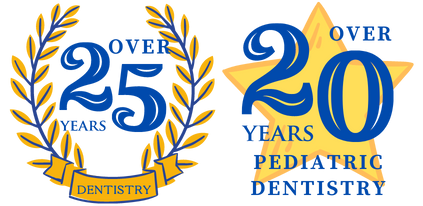Post-Treatment Instructions
These instructions are provided for your convenience as you care for a child recovering from oral treatment with or without sedation. If anything is ever unclear or you have questions not answered in these instructions, please call our office.
All Dental Treatments Requiring Local Anesthetic
- Children should be observed until the numbness wears off. Due to the strange feeling of the anesthetic, children sometimes chew the inside of their lips, cheeks or tongue which may result in pain, tissue damage, and/or swelling in the area.
- Children should not eat for at least 2-3 hours after the anesthetic. If your child is hungry, encourage liquids, milkshakes or smoothies.
- The lips may be dry. For dryness, Vaseline or a lip balm may be applied to the lips.
- Sensitivity, especially to cold, is common for a few days following a dental restoration. Usually, the deeper the cavity, the more sensitive a tooth may be. Patients usually will not experience pain, however, discomfort may be treated with Tylenol elixir if your child is not allergic to Tylenol.
- The gum tissue and/or the anesthetic injection site may be sore for a few days.
- The finished restoration may be contoured slightly different and have a different texture than the original tooth structure. The tongue usually magnifies this small difference which may not be noticed by the naked eye, but the tongue usually becomes accustomed in a few days.
- Brush the teeth gently and thoroughly every day as usual. This should be done by an adult, since young children lack the hand skills and motivation to clean the teeth properly.
Crowns
- After the local anesthesia wears off, the bite may feel different. It takes a few days to get accustomed.
- Avoid chewing on hard, sticky foods and candies.
- If crowns in the front were done, cut carrots, apples etc. in pieces and encourage your child to chew them with their back teeth.
Extractions
- Encourage child to bite on the gauze for the first 30 minutes after the extraction. The child should not chew on the gauze.
- Children usually will not experience severe pain, unlike adults. If your child is not allergic to Tylenol, it almost always takes care of any extraction discomfort. You can give it every 4-6 hours if needed. Sometimes, children may experience mild swelling.
- Limit the child’s intake to clear liquids for the first several hours. Do Not use straws (Sucking through a straw may increase bleeding.) Drinking from a cup or glass is fine. Clear liquids include: ice chips, popsicles, clear fruit juices and water.
- The first meal should be soft requiring little chewing. Suggestions include: applesauce, scrambled eggs, JELLO®, ice cream, mashed potatoes, macaroni & cheese, soup and yogurt.
- A minimal amount of bleeding will be expected to occur for the first 24 hours after a tooth is extracted. Often there is a slight oozing of blood, when mixed with saliva, may appear to be excessive bleeding. In case of persistent bleeding, fold two or three sterile gauze pads and place over the bleeding area. Encourage the child to bite on the pads for 45 minutes.
- For your convenience, put an old pillowcase on the pillow in case of oozing. There will be less to wash up and worry about later. However, hydrogen peroxide will take stains out.
- If a sponge was placed in the extraction site, it minimes bleeding and prevents the loss of the clot so it can heal faster.
- Have your child rest and plan to watch him/her the rest of the day. Resting, reading, watching TV, and being up and about as your child feels able, are all fine. Avoid strenuous play activities, especially if it is warm.
- Control of oral bacteria is always important, and particularly after extractions. Brush the teeth as usual, avoid the extraction site the first day or two.
- Starting the day after the extraction, have your child rinse with warm salt water rinses (1/2 teaspoon in 4 oz of water) after eating for 3-5 days.
Sealants, Spacer Maintainers and Groper Appliances
- The bite may feel different. It takes a few days to get use any new change in the mouth.
- Avoid chewing on hard, sticky foods and candies.
- Regular brushing and flossing should maintained and these in turn will increase the longevity of the treatment.
Please call us anytime with questions or concerns! (909) 548-4044
